I’ve read a lot of books in the last couple of years. These books helped me to understand more about how Christian nationalism and evangelicalism have affected the American church. I’ve included the Amazon blurb for each, as well as a link to the Amazon listing for the book.
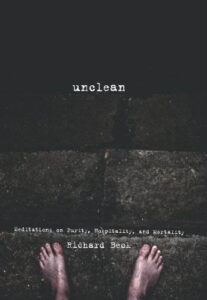
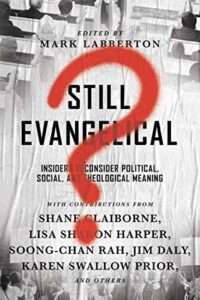
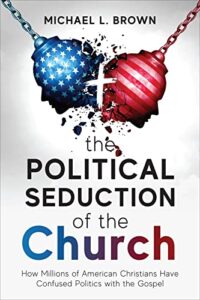
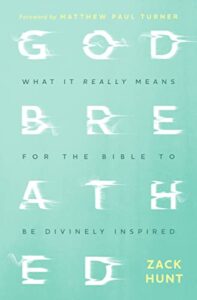
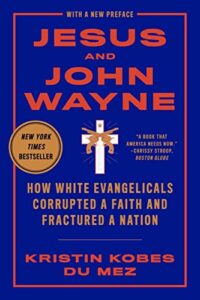
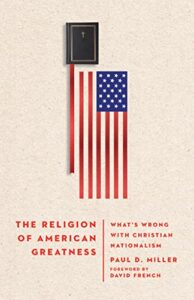
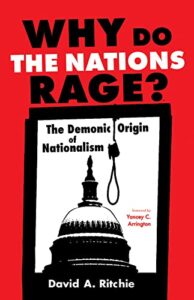
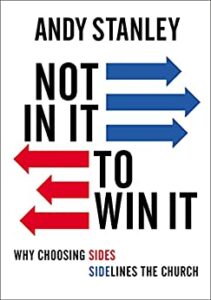
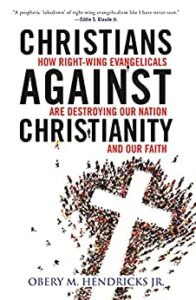
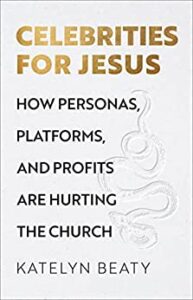
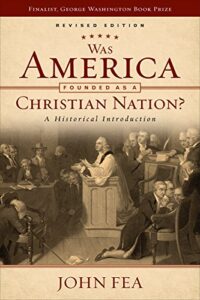
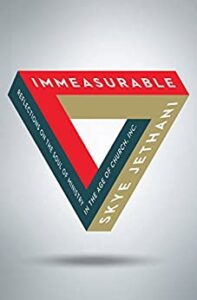
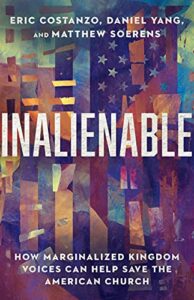
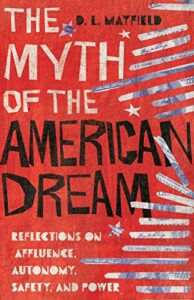
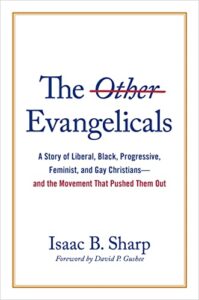
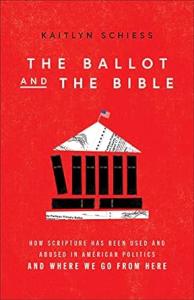

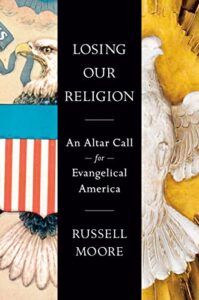

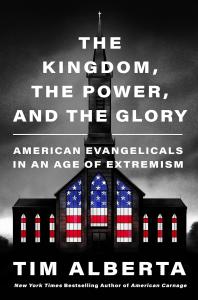

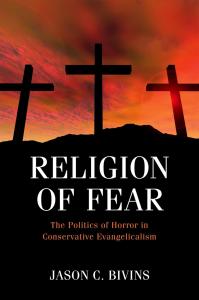
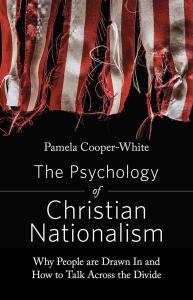
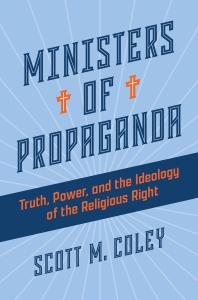
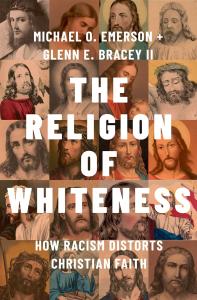
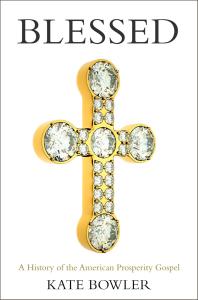

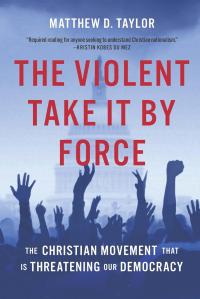
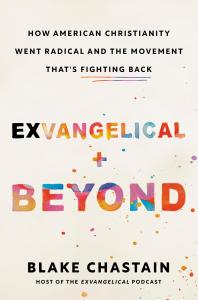
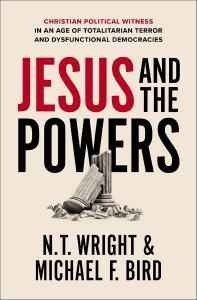
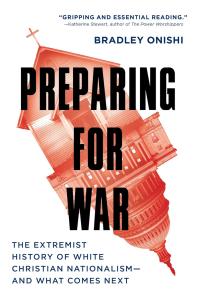
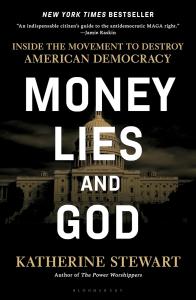
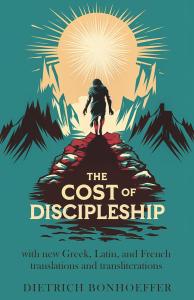
Reviews
“Unclean: Meditations on Purity, Hospitality, and Mortality” by Richard Beck


I really appreciated this book’s explanation of the theology of disgust. It inspired me to write an entire blog post – or more precisely, it facilitated a blog post on a topic that I’d been inspired to write just a few days before starting this book. So it was incredibly timely for me. I had begun to see how disgust is weaponized by the church in so many different ways, and how it contributes to an overriding sense of xenophobia (fear of the other) within Christianity, which leaves us pathalogically unable to enter into ministry and relationship with people starkly different than us. Yet, that is our very mission: to bring healing and salvation to the poor and needy and unclean around us. So we’ve got to get over that focus on ritual cleanliness. This book does a great job of pointing out how it’s created within Christianity, and that can help us to avoid the traps.
(Reviewed May 2023)
Amazon description: “I desire mercy, not sacrifice.” Echoing Hosea, Jesus defends his embrace of the “unclean” in the Gospel of Matthew, seeming to privilege the prophetic call to justice over the Levitical pursuit of purity. And yet, as missional faith communities are well aware, the tensions and conflicts between holiness and mercy are not so easily resolved. At every turn, it seems that the psychological pull of purity and holiness tempts the church into practices of social exclusion and a Gnostic flight from “the world” into a “too spiritual” spirituality. Moreover, the psychology of purity often lures the church into what psychologists call “The Macbeth Effect,” the psychological trap that tempts us into believing that ritual acts of cleansing can replace moral and missional engagement. Finally, time after time, wherever we see churches regulating their common life with the idiom of dirt, disgust, and defilement, we find a predictable wake of dysfunction: ruined self-images, social stigma, and communal conflict. In an unprecedented fusion of psychological science and theological scholarship, Richard Beck describes the pernicious (and largely unnoticed) effects of the psychology of purity upon the life and mission of the church.
“Still Evangelical?: Insiders Reconsider Political, Social, and Theological Meaning” by Mark Labberton


This book was worth the time and money I spent on it, but it’s far from the top of my list. It gave me a lot of useful insights into those who refuse to abandon the evangelical label. I disagree with many of them, but I can appreciate the arguments, and if nothing else, it’s sharpened my understanding of the various positions around postmodern and post-Trump evangelicalism.
(Reviewed May 2023)
Amazon description: Evangelicalism in America has cracked, split on the shoals of the 2016 presidential election and its aftermath, leaving many wondering if they want to be in or out of the evangelical tribe. The contentiousness brought to the fore surrounds what it means to affirm and demonstrate evangelical Christian faith amidst the messy and polarized realities gripping our country and world. Who or what is defining the evangelical social and political vision? Is it the gospel or is it culture? For a movement that has been about the primacy of Christian faith, this is a crisis.
This collection of essays was gathered by Mark Labberton, president of Fuller Theological Seminary, who provides an introduction to the volume. What follows is a diverse and provocative set of perspectives and reflections from evangelical insiders who wrestle with their responses to the question of what it means to be evangelical in light of their convictions.
“The Political Seduction of the Church: How Millions Of American Christians Have Confused Politics with the Gospel” by Michael L. Brown


Michael Brown is a through-and-through conservative evangelical Christian, and he really didn’t like what he saw happening to his church leading up to and following the Trump presidency.
I really did NOT like this book, and would NOT recommend it to anyone in the circles I am inhabiting these days. With that said, I WOULD recommend it to my evangelical conservative Christian family and former church friends, because Brown speaks their (my former) language while nonetheless being unflinchingly critical of their seduction into Trump worshippers.
Basically, mixed in with correctly and cogently analyzing how the evangelical church has behaved for the past seven or so years, he spends far too much time pushing back against anything even remotely liberal or progressive, both social and religious. And that clashes mightily with my current understanding of the Bible and the world.
That’s a shame, because he’s got a lot of really good things to say about how the evangelical church got completely coopted by its lust for power and control and nationalism.
Some books aren’t for everyone.
(Reviewed July 2023)
Amazon description: Was the relationship between evangelical Christians and Donald Trump a match made in heaven or a marriage made with hell? Did Christian conservatives trade their reputation for a seat at the political table, or is this just a false accusation from the Trump-hating, Christian-bashing, leftist media? And how did Donald Trump go from unlikely presidential candidate to superhero to political savior in the eyes of his supporters?
“Godbreathed: What It Really Means for the Bible to Be Divinely Inspired” by Zack Hunt


This was a fairly quick read. Zach Hunt’s main thesis seems to be that the fundamentalist and evangelical inerrant approach to reading the Bible, coming from a misreading of the word translated “God-breathed,” is misguided and leads to all manner of misuse of the scriptures to oppress people, ignoring the overarching point of the Bible that it is all about love, how we love people practically and like Christ would love them. It’s a view I had come to adopt already before reading this book but he summarizes some of the main ways that the fundamentalist church in America, with its slavish devotion to inerrancy, has lost its way and has led to a dying church. The book style is fairly conversational and often pointedly irreverent, I think sometimes overdoing it to make a point. Also, he doesn’t hesitate to use this platform to argue against the conservative views on a number of hot button issues in current American Christianity such as racism and LGBTQ. While I agree with his views, it maybe weakens the book somewhat by getting caught up in topics that are certainly valid but are secondary to his main focus. Because they are so controversial right now, this approach will chase away the very people he hopes to convince about what “God-breathed” means and what it implies for us as faithful, Bible-believing Christians who might choose to lay aside the notion of inerrancy. For these reasons it’s a good book for people already on the progressive spectrum of Christianity, giving some good talking points and data, but won’t likely do much to advance the cause.
(Reviewed June 2023)
Amazon description: Could there be good news in biblical imperfections?
What if the imperfections and contradictions in Scripture aren’t an accident? What if they were allowed to be there by the Holy Spirit in order to draw us beyond the literal words on the page and deeper into the spiritual truth God is trying to teach us? As provocative or unorthodox as that might sound, it is in fact a very ancient way of understanding what it means for the Bible to be divinely inspired. In this thorough and disarming book, author Zack Hunt explains how we got here and offers a practical and easily accessible approach for reading and understanding the Bible that doesn’t require a PhD in biblical languages.
As the disillusioned leave the Church in droves and the deconstructing search for better answers to eternal questions, this book repositions Scripture in the life of the Church to allow it to be what it was meant to be all along: a source of life, hope, and freedom for all. Godbreathed will reclaim the idea of biblical truth and reveal it to be not a list of beliefs to affirm or laws to be followed, but an invitation into a new way of living and loving on earth as it is in heaven.
“Jesus and John Wayne: How White Evangelicals Corrupted a Faith and Fractured a Nation” by Kristin Kobes Du Mez


Wow. Okay, this book, the target of my second book study, is a mixed grab bag of indisputable history facts with a bit of grandstanding from someone who was clearly wounded by patriarchy. But despite the flaws that we uncovered, it’s another deep dive into a side of American history that is both undeniable and simultaneously steadfastly ignored by the evangelical branch of America’s church culture. Worth the read.
(Reviewed August 2021)
Amazon description: Jesus and John Wayne is a sweeping, revisionist history of the last seventy-five years of white evangelicalism, revealing how evangelicals have worked to replace the Jesus of the Gospels with an idol of rugged masculinity and Christian nationalism—or in the words of one modern chaplain, with "a spiritual badass." As acclaimed scholar Kristin Du Mez explains, the key to understanding this transformation is to recognize the centrality of popular culture in contemporary American evangelicalism. Many of today’s evangelicals might not be theologically astute, but they know their VeggieTales, they’ve read John Eldredge’s Wild at Heart, and they learned about purity before they learned about sex—and they have a silver ring to prove it. Evangelical books, films, music, clothing, and merchandise shape the beliefs of millions. And evangelical culture is teeming with muscular heroes—mythical warriors and rugged soldiers, men like Oliver North, Ronald Reagan, Mel Gibson, and the Duck Dynasty clan, who assert white masculine power in defense of "Christian America." Chief among these evangelical legends is John Wayne, an icon of a lost time when men were uncowed by political correctness, unafraid to tell it like it was, and did what needed to be done. Challenging the commonly held assumption that the "moral majority" backed Donald Trump in 2016 and 2020 for purely pragmatic reasons, Du Mez reveals that Trump in fact represented the fulfillment, rather than the betrayal, of white evangelicals’ most deeply held values: patriarchy, authoritarian rule, aggressive foreign policy, fear of Islam, ambivalence toward #MeToo, and opposition to Black Lives Matter and the LGBTQ community. A much-needed reexamination of perhaps the most influential subculture in this country, Jesus and John Wayne shows that, far from adhering to biblical principles, modern white evangelicals have remade their faith, with enduring consequences for all Americans.
“The Religion of American Greatness: What’s Wrong with Christian Nationalism” by Paul D. Miller


Read this book. Seriously. This is an essential expose on Christian Nationalism in the US, and its deep and dark dangers to the entire American system. The author comes from a very highly experienced and scholarly position, and very carefully sources all his points and assertions. If you want to understand what’s happening in America today as parts of the evangelical church try to "take back America for God," you really seriously need to understand this material.
(Reviewed August 2022)
Amazon description: Long before it featured dramatically in the 2016 presidential election, Christian nationalism had sunk deep roots in the United States.
Paul D. Miller, a Christian scholar, political theorist, veteran, and former White House staffer, provides a detailed portrait of—and case against—Christian nationalism. Building on his practical expertise not only in the archives and classroom but also in public service, Miller unravels this ideology’s historical importance, its key tenets, and its political, cultural, and spiritual implications.
Miller shows what’s at stake if we misunderstand the relationship between Christianity and the American nation. Christian nationalism—the religion of American greatness—is an illiberal political theory, at odds with the genius of the American experiment, and could prove devastating to both church and state. Christians must relearn how to love our country without idolizing it and seek a healthier Christian political witness that respects our constitutional ideals and a biblical vision of justice.
“Why Do the Nations Rage?: The Demonic Origin of Nationalism” by David A. Ritchie


This is a pretty potent book that presents some scriptural understanding of principalities and powers, and shows how Biblical concepts like "the prince of Persia" translate into realities of demonic strongholds over modern "nations" – which are not political entities per se, but a broader category of political or ethnic or regional domains. It then begins to consider how people funnel religious energy into nationalism, and how this nationalism can usurp even a Christian world view. It’s not focused just on Christian nationalism; it uses plenty of illustrations and examples from other nations to make the case.
(Reviewed June 2022)
Amazon description: What if we understood nationalism as a religion instead of an ideology? What if nationalism is more spiritual than it is political? Several Christian thinkers have rightly recognized nationalism as a form of idolatry. However, in Why Do the Nations Rage?, David A. Ritchie argues that nationalism is inherently demonic as well. Through an interdisciplinary analysis of scholarship on nationalism and the biblical theology behind Paul’s doctrine of "powers," Ritchie uncovers how the impulse behind nationalism is as ancient as the tower of Babel and as demonic as the worship of Baal. Moreover, when compared to Christianity, Ritchie shows that nationalism is best understood as a rival religion that bears its own distinctive (and demonically inspired) false gospel, which seeks to both imitate and distort the Christian gospel.
“Not in It to Win It: Why Choosing Sides Sidelines The Church” by Andy Stanley


This is a stunningly insightful book about today’s American church culture that turns everything into conflict and spends so much of its energy battling in the culture war. But Jesus showed something shockingly different – even to His own time – He choose to surrender, and He never once attacked or tried to overthrow or take over the government of His day. He simply loved people and surrendered His life, and His example changed the world.
(Reviewed June 2022)
Amazon description: Is it possible to disagree politically and love unconditionally? The reaction of evangelicals to political and cultural shifts in recent years revealed what they value most. Lurking beneath our Bible-laced rhetoric, faith claims, books, and sermons is a relentless drive to WIN!
But the church is not here to win. By every human measure, our Savior lost. On purpose. With a purpose. And we are his body. We are not in it to win anything. We are in it for something else entirely. That something else is what this book is about.
You’ll discover:
Jesus never asked his followers to agree on everything. But he did call his followers to obey a new command: to love others in the same way he has loved us. Instead of asserting our rights or fighting for power, we need to begin asking ourselves: what does love require of me?
“Christians Against Christianity: How Right-Wing Evangelicals Are Destroying Our Nation and Our Faith” by Obery M. Hendricks


The words in Amazon’s description, including "galvanizing," "scathing," and "clarion call," are certainly on point. This will be a "love it or hate it" book, for sure. I’d love to sit down with Dr. Hendricks some time and interview him. I’m absolutely certain that I would learn an amazing amount from him in a short time.
This book was chock full of factual historical details about the formation of evangelical thinking, like a number of other books described on this page. He methodically addresses all the hot-button topics against which modern evangelical Christians are up in arms right now, including social justice, abortion, workers’ rights and big business, gun control, homophobia, and more. He tears gaping holes in the justification for the right-wing position for every single one of them.
I was already familiar with almost all the ideas which Dr. Hendricks addresses, and I had read several reviews by conservative evangelical Christians railing against this book being supposedly filled with heresy and left-wing socialistic views. However, he provides reasonable and rational and inspired answers against the multitudes of right-wing and evangelical claims. There are certainly some areas where I take issue with his assertions, for example just one or two instances where I think the Bible translation he used results in a particular spin that the original Greek or Hebrew might not support. But on the whole, I found very little in this book that did not have a strong factual basis and scriptural support.
I appreciated that he was careful to distinguish between "evangelical" and "right-wing evangelical," and to repeatedly emphasize that modern right-wing evangelicalism bears extremely little resemblance to its origins.
He was also scathing in his identification of the sudden downward spiral represented by the election of President Trump, and the evangelical church’s running after him as their darling, and I believe with good reason.
Perhaps the most shocking statement in the entire book was found halfway through the epilogue: "But their full possession by a spirit of antichrist can be considered to have occurred when their leaders made a devil’s bargain with Donald Trump to defend his avalanche of lies, hate mongering, blatant immoral indecency, and outright attacks on the democratic rule of law in return for his support of their agenda to dominate American society." Ouch. If he is correct, this would explain a lot. And with the perspective available to me from spending much of the last year separating myself from both evangelicalism and right-wing ideology, I can see the truth in this stunning indictment.
(Reviewed July 2022)
Amazon description: A timely and galvanizing work that examines how right-wing evangelical Christians have veered from an admirable faith to a pernicious, destructive ideology.
Today’s right-wing Evangelical Christianity stands as the very antithesis of the message of Jesus Christ. In his new book, Christians Against Christianity, best-selling author and religious scholar Obery M. Hendricks Jr. challenges right-wing evangelicals on the terrain of their own religious claims, exposing the falsehoods, contradictions, and misuses of the Bible that are embedded in their rabid homophobia, their poorly veiled racism and demonizing of immigrants and Muslims, and their ungodly alliance with big business against the interests of American workers.
He scathingly indicts the religious leaders who helped facilitate the rise of the notoriously unchristian Donald Trump, likening them to the "court jesters" and hypocritical priestly sycophants of bygone eras who unquestioningly supported their sovereigns’ every act, no matter how hateful or destructive to those they were supposed to serve.
In the wake of the deadly insurrectionist attack on the US Capitol, Christians Against Christianity is a clarion call to stand up to the hypocrisy of the evangelical Right, as well as a guide for Christians to return their faith to the life-affirming message that Jesus brought and died for. What Hendricks offers is a provocative diagnosis, an urgent warning that right-wing evangelicals’ aspirations for Christian nationalist supremacy are a looming threat, not only to Christian decency but to democracy itself. What they offer to America is anything but good news.
“Celebrities for Jesus: How Personas, Platforms, and Profits Are Hurting the Church” by Katelyn Beaty


This book left me shaking my head wondering why I’d never really thought through all the problems with celebrity Christianity, and more than that, how many ways we allow hero worship to creep into our faith practices. I’ve long been concerned about the BIG celebrities, especially after listening to "The Rise and Fall of Mars Hill" podcast, but even the small and local celebrities, can cause trouble in our doctrine.
It also ended on a great reminder that Jesus’ way of making disciples and influencing culture was always the non-obvious, humble, self-sacrificing way, and that should apply to our leaders too.
(Reviewed October 2022)
Amazon description: Many Christian leaders use their fame and influence to great effect. Whether that popularity resides at the local church level or represents national or international influence, many leaders have effectively said to their followers, "Follow me as I follow Christ." But fame that is cultivated for its own sake, without attendant spiritual maturity and accountability, has a shadow side that runs counter to the heart of the gospel. Celebrity–defined as social power without proximity–has led to abuses of power, the cultivation of persona, and a fixation on profits.
In light of the fall of famous Christian leaders in recent years, the time has come for the church to reexamine its relationship to celebrity. Award-winning journalist Katelyn Beaty explores the ways fame has reshaped the American church, explains how and why celebrity is woven into the fabric of the evangelical movement, and identifies many ways fame has gone awry in recent years. She shows us how evangelical culture is uniquely attracted to celebrity gurus over and against institutions, and she offers a renewed vision of ordinary faithfulness, helping us all keep fame in its proper place.
“Was America Founded as a Christian Nation?” by John Fea


I found this book to be a very helpful walk through early American history – both before and around the time of the writing of the Declaration of Independence and the Constitution, up through the Bill of Rights. It’s chock-full of well-sourced historical writings of the Founders themselves. Rather than starting from a "yes" or "no" answer, Fea addresses the question with equanimity and patience. The answer, to give a bit of a spoiler, is a resounding "maybe – it really depends on how you define ‘Christian’."
(Reviewed February 2022)
Amazon description: John Fea offers a thoroughly researched, evenhanded primer on whether America was founded to be a Christian nation, as many evangelicals assert, or a secular state, as others contend. He approaches the title’s question from a historical perspective, helping readers see past the emotional rhetoric of today to the recorded facts of our past. This updated edition reports on the many issues that have arisen in recent years concerning religion’s place in American society including the Supreme Court decision on same-sex marriage, contraception and the Affordable Care Act, and state-level restrictions on abortion and demonstrates how they lead us to the question of whether the United States was or is a Christian nation. Fea relates the history of these and other developments, pointing to the underlying questions of national religious identity inherent in each. "We live in a sound-bite culture that makes it difficult to have any sustained dialogue on these historical issues," Fea writes in his preface. "It is easy for those who argue that America is a Christian nation (and those who do not) to appear on radio or television programs, quote from one of the founders or one of the nation’s founding documents, and sway people to their positions. These kinds of arguments, which can often be contentious, do nothing to help us unravel a very complicated historical puzzle about the relationship between Christianity and America’s founding."
“Immeasurable: Reflections on the Soul of Ministry in the Age of Church, Inc.” by Skye Jethani


This was a powerful book to me. It’s really written to pastors and church leaders, but I found it very useful to help me understand the Biblical role of pastors and churches, in contrast to what is visible today in the American evangelical church systems in which I was raised. In particular, it calls us to recognize when we’ve gotten a little too focused on metrics and numbers and the business of church, and not focused enough on the ministry and people within the organization.
(Reviewed April 2022)
Amazon description: “In my first seminary class, we were asked to introduce ourselves and say why we enrolled. I’ll never forget what one student said ‘My denomination wants me to have an M.Div., but once they see I can grow a big church, I don’t think they’ll make me finish the program.'” The priorities of this future pastor were startling, but he’s not alone in them.In the years since that class, author and minister Skye Jethani has seen more and more pastors swallowed by the celebrity syndrome. Not long ago, ministers were among the most trusted and admired people in our culture. But not anymore. A 2013 study from Gallop revealed that Americans’ admiration for clergy has reached an all-time low. That, taken with reduced trust of institutional religion overall, makes it easy to see why ministers feel insecure about their calling. In response to this trend, some pastors have looked to emulate those who are praised by the culture—business leaders, entertainers, and social activists. This has led to a new understanding of what a minister should be. We’ve turned away from viewing our pastors as shepherds, and now expect them to be celebrities. Immeasurable will help ministers recognize the cultural forces shaping their view of the calling, and then reimagine what faithful church leaders can look like in the twenty-first century. Through short essays and reflections on the pastor’s soul and skills, this book will help prospective pastors explore their calling to ministry, and it will help veteran pastors reframe their vision for the work. Drawing on cultural dynamics, personal stories, and his own experience working in a church and with church leaders, Skye Jethani will address matters like ambition, anger, community, consumerism, fame, health, justice, platform, preaching, rest,simplicity, success, vision, and more. There are endless resources to help pastors do the practical work of ministry, but there are far fewer that speak to the pastor’s soul and spirit. Immeasurable provides affirmation and encouragement for church leaders faithfully serving God. It commends the true work of ministry—shepherding, teaching, encouraging—while redefining what we mean by success in ministry. It’s a book church leaders can return to again and again for insight and inspiration.
“Inalienable: How Marginalized Kingdom Voices Can Help Save the American Church” by Eric Costanzo, Daniel Yang, and Matthew Soerens


This was a very impactful book to me. It’s written by three very different US-born white evangelical men – a pastor, a missiologist, and a parachurch ministry leader. Each brings their own unique perspective and experience to the book, yet it’s a very coherent work. Its basic thrust is carefully assessing the struggles facing the American church, particularly the evangelical wing of the church, and frankly and openly considering its blind spots, particularly in how it has marginalized other communities and other worldwide Christians, cutting itself off from the insights and blessings that those communities bring to Christianity. The four themes of the book include the kingdom of God, the image of God, the word of God, and the mission of God. The entire book is deeply insightful, and well worth your time.
Perhaps the most valuable thing about this book to me was how it opened my eyes to the contributions from Christians outside the United States. It challenged a lot of my assumptions about the primacy and superiority of the American church’s doctrine and spiritual wisdom. Reading this book has put a new desire in me to begin learning about how the church in other cultures and nations understands the Gospel and God Himself; I am convinced that such study will give me great insight into my own faith and a new rich ability to connect with God at a deeper level.
(Reviewed July 2022)
Amazon description: With our witness compromised, numbers down, and reputation sullied, the American church is at a critical crossroads. In order for the church to return to health, we must decenter ourselves from our American idols and be guided by global Christians and the poor, who offer hope from the margins, and the ancient church, refocusing on the kingdom, image, Word, and mission of God.
The authors say:
We’ve written this book because we believe American Christians are at a critical crossroad, and the very soul of the American church is at stake. Jesus Christ promised that his church will endure until he returns again (Mt 16:18). He did not make that promise to the American church, however. If we are to stem this tide of decline and decay, it will take all of us—and it will take humility to listen to voices of the church beyond the White American evangelical stream of the faith which has long assumed leadership.
“The Myth of the American Dream: Reflections on Affluence, Autonomy, Safety, and Power” by D. L. Mayfield


Wow. I highly, highly recommend this book.
I’m really conflicted on how to write this review. It was a deeply, personally, painfully challenging book, on multiple levels. It directly poked at many things I grew up with in my life, and despite all the changes in my heart and actions in the last two years, it still found me jerking back as yet another nerve was touched, a fiery sting of recognition of my own shortcomings.
At the same time, it often felt like sitting in the therapist’s office as the author poured out her heart – her white, American, privileged, evangelical, self-sufficient, superior heart – over the injustices she became aware of, and became aware she was complicit in. There was constantly a tension between feeling my own discomfort and sometimes pain, and vicariously watching her intensely feel her own discomfort and sometimes pain.
And yet, despite this discomfort, I came away from each session feeling as if there was a deep hope and peace amidst the pain, a recognition of the amazing gift to which we Christians have ready access if we can just step back from our pursuit of affluence, of autonomy, of safety, and of power (her four major sections), and see the world – and "the least of these" among us – through God’s loving eyes.
(Reviewed August 2022)
Amazon description: Affluence, autonomy, safety, and power. These are the central values of the American dream. But are they compatible with Jesus’ command to love our neighbor as ourselves?
In essays grouped around these four values, D. L. Mayfield asks us to pay attention to the ways they shape our own choices, and the ways those choices affect our neighbors. Where did these values come from? How have they failed those on the edges of our society? And how can we disentangle ourselves from our culture’s headlong pursuit of these values and live faithful lives of service to God and our neighbors?
“The Other Evangelicals: A Story of Liberal, Black, Progressive, Feminist, and Gay Christians – and the Movement That Pushed Them Out” by Isaac B. Sharp and David P. Gushee


I loved this book. Over the last year, I’ve read probably two dozen books that detail some aspects of the history of evangelicalism, and this book basically wraps up all that history into one fairly dense and incredibly thorough summary.
The pure-as-the-wind-driven-snow concept I have long held about evangelicalism is, to put it very mildly, total whitewashing. Oh, and literally "white." The history of how we got to modern (even pre-Trump modern) evangelicalism is actually rather pocked with quite a bit of mess, a lot of it wrapped up in racist, segregationist, and outright pro-slavery theology. The ways that evangelical leaders have put fences around which people are allowed to claim the label "evangelical" have been outright harmful in many cases.
I understand that how we got to a given set of beliefs doesn’t necessarily define the rightness of those beliefs. But it should nonetheless inform our assumption about whether those beliefs are inherently trustworthy. When a system of thought has its origins in very ungodly actions and practices, it deserves extreme scrutiny.
In a nutshell, once my "evangelicalism is perfect" mental structure cracked, it fell apart fairly quickly as I encountered fact after fact after fact that eroded the previously-perfect foundations in my mind. And this book does a careful, thorough, and very readable job of packaging all of that history, topic-by-topic, into a single volume.
(Reviewed May 2023)
Amazon description: What’s the first thing that comes to mind when you hear "evangelical"?
For many, the answer is "white," "patriarchal," "conservative," or "fundamentalist"—but as Isaac B. Sharp reveals, the "big tent" of evangelicalism has historically been much bigger than we’ve been led to believe. In The Other Evangelicals, Sharp brings to light the stories of those twentieth-century evangelicals who didn’t fit the mold, including Black, feminist, progressive, and gay Christians.
Though the binary of fundamentalist evangelicals and modernist mainline Protestants is taken for granted today, Sharp demonstrates that fundamentalists and modernists battled over the title of "evangelical" in post-World War II America. In fact, many ideologies characteristic of evangelicalism today, such as "biblical womanhood" and political conservatism, arose only in reaction to the popularity of evangelical feminism and progressivism. Eventually, history was written by the "winners"—the Billy Grahams of American religion—while the "losers" were expelled from the movement via the establishment of institutions such as the National Association of Evangelicals.
Carefully researched and deftly written, The Other Evangelicals offers a breath of fresh air for scholars seeking a more inclusive history of religion in America.
“The Ballot and the Bible: How Scripture Has Been Used and Abused in American Politics and Where We Go from Here” by Kaitlyn Schiess


Definitely recommended.
Schiess is a young author, and I detect this in some of her writing, but it’s a surprisingly solid book nonetheless.
I’ve read a lot of American political/sociological/religious history – mostly about our religious systems and how they developed and morphed over the last several hundred years – and this book did a good job of tying them together.
Schiess has a definite progressive tilt to her thinking, and since that agrees with my own approach, I didn’t mind it, but I can see how some readers would be frustrated by a few of her conclusions. But she makes extremely solid arguments for her conclusions, both logically and from Scripture, and shows how the current trend in politics and religion is fraught with danger that we really need to address as a society.
(Reviewed September 2023)
Amazon description: How do Bible passages written thousands of years ago apply to politics today? What can we learn from America’s history of using the Bible in politics? How can we converse with people whose views differ from our own?
In The Ballot and the Bible, Kaitlyn Schiess explores these questions and more. She unpacks examples of how Americans have connected the Bible to politics in the past, highlighting times it was applied well and times it was egregiously misused.
Schiess combines American political history and biblical interpretation to help readers faithfully read Scripture, talk with others about it, and apply it to contemporary political issues–and to their lives. Rather than prescribing what readers should think about specific hot-button issues, Schiess outlines core biblical themes around power, allegiance, national identity, and more.
Readers will be encouraged to pursue a biblical basis for their political engagement with compassion and confidence.
“Manifold Witness: The Plurality of Truth” by John R. Franke


Franke does a good job in this book of arguing against the very common "my way or the highway" approach to Christianity, where we are so focused on boundary creation and maintenance that we have a hard time even imagining how we could be "one" with other denominations even in our own nation, much less people of vastly different cultures. Yet, that was Jesus’ prayer in John 17: "Make them one, Father, even as you and I are one," more or less.
So if we can’t get past our own doctrinal walls with fellow Christians, how could we ever become one?
This fits neatly with something about which I’ve been passionate for some time: doctrinal humility – the idea that if there are many different approaches to worship and the Word in all the different denominations, and if very skilled and intelligent readers of the scriptures cannot agree on a single doctrine, it’s extremely likely that whatever I personally believe is actually very incomplete, and not only should I be humble about my beliefs, I actually should assume that I NEED others and their beliefs to become complete, to become "one" with not only them, but in such a way as to properly and fully represent the Father and Son to a watching world.
So Franke basically asserts that it’s impossible to represent all of God with any one limited doctrine, and that it’s a fallacy to assume that the RIGHT answer is ever going to be "they all need to become like me."
Doctrinal humility. It’s hard, but necessary and valuable.
(Reviewed May 2023)
Amazon description: If Christians are part of the one body of Christ, how do we account theologically for the multiple expressions of our common faith? If God is ultimate truth, why is it so difficult to agree on issues related to truth? Must we sacrifice a commitment to truth in favor of a pragmatic unity in the church? Or must we hold on to our perception of the truth at the expense of fracturing the church? For John Franke, truth versus unity is a false dichotomy. In this provocative yet thoughtful book, he argues that orthodox and biblical Christian faith is inherently pluralist, and that this diversity, far from being a problem that needs to be overcome, is in fact a blessing from God and part of the divine design and intention for the church. Suggesting that Christians should affirm the reality of ultimate truth, but cautioning humility regarding our grasp of it, Franke sets forth a relational theology in which the many expressions of revealed truth—Christ, the Holy Spirit, and Scripture, along with a diverse church—together witness to the expansiveness of the one God. "John Franke asserts the plurality of truth, not as a capitulation to non- or anti-Christian thought, but rather as an expression of profoundly Christian thought—and specifically, of emergent, missional, and Trinitarian Christian thought. In so doing, he gently implies that the dominant alternative view—that white, modernist, Western Christian scholars and institutions have a monopoly on truth—is actually a capitulation to modes of thought and power that have betrayed the life and gospel of Jesus Christ."
“Losing Our Religion: An Altar Call for Evangelical America” by Russell Moore


I have mixed feelings about this book.
First, the good: It’s a powerful indictment of the evangelical church in America today, and Moore is unafraid to call out the church for what he sees. And I think he’s right about his analysis: the evangelical church has largely sold itself out, and only has itself to blame for its decline and all the ugliness of the last few years. A lot of what Moore says is absolutely true, and frankly, it’s damning.
But here’s what troubled me about the book: it’s disjointed. First, it only has five chapters for 266 pages, and there are really no subheadings. Each chapter therefore covers a TON of ground, taking maybe 45 minutes or so to read (and I’m a fast reader). To be quite honest, Moore rambles. In the acknowledgements after his conclusion, Moore notes that the book developed from his newsletter, and it shows: it really does read like a lot of individual vignettes kind of strung together, loosely grouped around topics. If he had a serious plan for each voluminous chapter, it certainly doesn’t show. In the end, I felt like I could have read the first five or ten pages of each chapter and gotten his point, and the rest was somewhat-related filler.
Also, and I admit this is particular to me, I’m not quite on Moore’s page about a number of more conservative viewpoints. He spent a lot of words (scattered through each chapter) calling people back to conservatism, and in so doing, he’s sure to lose some progressive leaders. Since I spent 45 years in that camp until very recently, I could handle it, but other long-time liberal or progressive Christians may have a hard time seeing his bigger points amid the conservative preaching. With that said, it’s who Moore is, and I was expecting no less from him. And honestly, it’s good to see a conservative calling out his fellow conservatives for their failures.
I’m glad I read the book; he makes some good points I hadn’t seen before, and he gives voice to a lot of my own concerns. I’m not sure it will be convincing to people thoroughly enmeshed in the issues he’s raising. But coming from someone with his long-time and well-respected evangelical credentials, perhaps it would be a good book to recommend for friends or relatives who got sucked into the Trump and MAGA vortex.
(Reviewed July 2023)
Amazon description: Former Southern Baptist pastor and Christianity Today editor-in-chief Russell Moore calls for repentance and renewal in American evangelicalism.
American evangelical Christianity has lost its way. While the witness of the church before a watching world is diminished beyond recognition, congregations are torn apart over Donald Trump, Christian nationalism, racial injustice, sexual predation, disgraced leaders, and covered-up scandals. Left behind are millions of believers who counted on the church to be a place of belonging and hope. As greater and greater numbers of younger Americans bleed out from the church, even the most rooted evangelicals are wondering, can American Christianity survive?
In Losing Our Religion, Russell Moore calls his fellow evangelical Christians to conversion over culture wars, to truth over tribalism, to the gospel over politics, to integrity over influence, and to renewal over nostalgia. With both prophetic honesty and pastoral love, Moore offers a word of counsel for how a new generation of disillusioned and exhausted believers can find a path forward after the crisis and confusion of the last several years. Believing the gospel is too important to leave it to hucksters and grifters, he shows how a Christian can avoid both cynicism and complicity in order to imagine a different, hopeful vision for the church.
The altar call of the old evangelical revivals was both a call to repentance and the offer of a new start. In the same way, this book invites unmoored and discouraged Christians to step out into an uncertain future, first by letting go of the kind of cultural, politicized, status quo Christianity that led us to this moment of reckoning. Only when we see how lost we are, we can find our way again. Only when we bury what’s dead can we experience life again. Only when we lose our religion can we be amazed by grace again.
“The Exvangelicals: Loving, Living, and Leaving the White Evangelical Church” by Sarah McCammon


This looked interesting enough that I pre-ordered it, and I wasn’t disappointed. It was compelling enough that I pretty much read straight through it in a couple sessions. Sarah’s story is very familiar to me: growing up in slightly-fundamentalist very-evangelical spaces, with all the James Dobson and Moral Majority and Reaganism influences. I wasn’t homeschooled, but the outcome wasn’t much different. The book interweaves personal stories of Sarah’s journey with analysis of the trends and events around evangelicalism, and I find that it does a good job of identifying a lot of the most difficult and painful aspects people face as they begin to discover that it wasn’t what they thought, and might require some repentance. This discussion is much larger than any one book can cover, and this book is certainly just a slice of it, but I think it handles it very well. It doesn’t try to provide any global answers – and that’s fine, because I don’t think there ARE any global answers. Rather, Sarah tells a story and shares her own experiences, and sometimes that’s enough for us to sit with, and learn from.
(Reviewed March 2024)
Amazon description: The first definitive book that names the growing social movement of people leaving the church: the exvangelicals.
Growing up in a deeply evangelical family in the Midwest in the ’80s and ’90s, Sarah McCammon was strictly taught to fear God, obey him, and not question the faith. Persistently worried that her gay grandfather would go to hell unless she could reach him, or that her Muslim friend would need to be converted, and that she, too, would go to hell if she did not believe fervently enough, McCammon was a rule-follower and – most of the time – a true believer. But through it all, she was increasingly plagued by fears and deep questions as the belief system she’d been carefully taught clashed with her expanding understanding of the outside world.
After spending her early adult life striving to make sense of an unraveling worldview, by her 30s, she found herself face-to-face with it once again as she covered the Trump campaign for NPR, where she witnessed first-hand the power and influence that evangelical Christian beliefs held on the political right.
Sarah also came to discover that she was not alone: she is among a rising generation of the children of evangelicalism who are growing up and fleeing the fold, who are thinking for themselves and deconstructing what feel like the “alternative facts” of their childhood.
Rigorously reported and deeply personal, The Exvangelicals is the story of the people who make up this generational tipping point, including Sarah herself. Part memoir, part investigative journalism, this is the first definitive book that names and describes the post-evangelical movement: identifying its origins, telling the stories of its members, and examining its vast cultural, social, and political impact.
“The Kingdom, the Power, and the Glory: American Evangelicals in an Age of Extremism” by Tim Alberta


Let’s be simple: this is a must-read book, in my opinion.
Tim Alberta tackles some of the most controversial problems facing evangelical American churches today, head-on, unflinchingly. Full of detailed accounts of his personal interactions with both problematic and hope-inducing thought leaders in today’s American evangelical scene, this book makes an incredibly strong case for the need for deep introspection and sorrowful repentance for its sins and failure to accurately represent Christ to the world.
(Reviewed March 2024)
Amazon description: Evangelical Christians are perhaps the most polarizing – and least understood – people living in America today. In his seminal new book, The Kingdom, the Power, and the Glory, journalist Tim Alberta, himself a practicing Christian and the son of an evangelical pastor, paints an expansive and profoundly troubling portrait of the American evangelical movement. Through the eyes of televangelists and small-town preachers, celebrity revivalists and everyday churchgoers, Alberta tells the story of a faith cheapened by ephemeral fear, a promise corrupted by partisan subterfuge, and a reputation stained by perpetual scandal.
For millions of conservative Christians, America is their kingdom – a land set apart, a nation uniquely blessed, a people in special covenant with God. This love of country, however, has given way to right-wing nationalist fervor, a reckless blood-and-soil idolatry that trivializes the kingdom of Jesus Christ. Alberta retraces the arc of the modern evangelical movement, placing political and cultural inflection points in the context of church teachings and traditions, explaining how Donald Trump’s presidency and the COVID-19 pandemic only accelerated historical trends that long pointed toward disaster. Reporting from half-empty sanctuaries and standing-room-only convention halls across the country, the author documents a growing fracture inside American Christianity and journeys with readers through this strange new environment in which loving your enemies is “woke” and owning the libs is the answer to WWJD.
Accessing the highest echelons of the American evangelical movement, Alberta investigates the ways in which conservative Christians have pursued, exercised, and often abused power in the name of securing this earthly kingdom. He highlights the battles evangelicals are fighting – and the weapons of their warfare – to demonstrate the disconnect from scripture: Contra the dictates of the New Testament, today’s believers are struggling mightily against flesh and blood, eyes fixed on the here and now, desperate for a power that is frivolous and fleeting. Lingering at the intersection of real cultural displacement and perceived religious persecution, Alberta portrays a rapidly secularizing America that has come to distrust the evangelical church, and weaves together present-day narratives of individual pastors and their churches as they confront the twin challenges of lost status and diminished standing.
Sifting through the wreckage – pastors broken, congregations battered, believers losing their religion because of sex scandals and political schemes – Alberta asks: If the American evangelical movement has ceased to glorify God, what is its purpose?
“Postcards from Babylon: The Church In American Exile” by Brian Zahnd


I learned about Brian Zahnd from another book I read, and he sounded like the kind of author I needed to check out. I picked this book to introduce myself, and it was a decent read – not my favorite author, but definitely saying a lot of important things to the church. My only complaint, I suppose, was that the second half of the book felt more like an extended sermon than anything else – quite a few very focused critiques and calls for repentance. I don’t mind those calls – I fully endorse everything he is saying – but it’s just not my preferred style; I like a more tightly-focused historical and analytical approach. With all that said, I’d love to talk to him sometime, and hear what he thinks of the last four years since he wrote the book, and how it’s been recieved. Something tells me that he’ll be feeling exactly the same, if not more intent on the same message, because every trend he identifies has proven quite true.
(Reviewed April 2024)
Amazon description: The original gospel proclamation that the Lord of the nations was a crucified Galilean raised from the dead and that salvation was found in vowing allegiance to Jesus of Nazareth unleashed a shock wave that turned the Roman Empire upside down. Early Christianity was subversive and dangerous – dangerous for Christians and a threat to the keepers of the old order. Most of all Christianity was countercultural. But what about contemporary American Christianity? Is it the countercultural way of Jesus or merely a religious endorsement of Americanism? In his provocative book, Postcards From Babylon, Brian Zahnd challenges the reader to see and embrace a daring Jesus-centered Christianity that can again turn the world upside down.
“Religion of Fear: The Politics of Horror in Conservative Evangelicalism” by Jason C. Bivins


I read the sample only of this book (about 80 pages out of 330). I would have liked to finish the book but the very high price ($45+ for Kindle alone) deterred me.
It’s a fairly scholarly-sounding book – a lot of professorial language – and is similarly very carefully written. The introduction and first two chapters were very informative and insightful about how the current fear-based religion that infests almost all of evangelicalism came about.
As a 2008 book, I’d be very interested to see what Bivens thinks about the last 16 years, which I believe have significantly ramped up the use of fear and “othering” that occurs in conservative evangelical circles.
(Reviewed October 2024)
Amazon description: Conservative evangelicalism has transformed American politics, disseminating a sometimes fearful message not just through conventional channels, but through subcultures and alternate modes of communication. Within this world is a “Religion of Fear,” a critical impulse that dramatizes cultural and political conflicts and issues in frightening ways that serve to contrast “orthodox” behaviors and beliefs with those linked to darkness, fear, and demonology. Jason Bivins offers close examinations of several popular evangelical cultural creations including the Left Behind novels, church-sponsored Halloween “Hell Houses,” sensational comic books, especially those disseminated by Jack Chick, and anti-rock and -rap rhetoric and censorship. Bivins depicts these fascinating and often troubling phenomena in vivid (sometimes lurid) detail and shows how they seek to shape evangelical cultural identity.
As the “Religion of Fear” has developed since the 1960s, Bivins sees its message moving from a place of relative marginality to one of prominence. What does it say about American public life that such ideas of fearful religion and violent politics have become normalized? Addressing this question, Bivins establishes links and resonances between the cultural politics of evangelical pop, the activism of the New Christian Right, and the political exhaustion facing American democracy.
Religion of Fear is a significant contribution to our understanding of the new shapes of political religion in the United States, of American evangelicalism, of the relation of religion and the media, and the link between religious pop culture and politics.
“The Psychology of Christian Nationalism: Why People Are Drawn In and How to Talk Across the Divide” by Pamela Cooper-White


This was a quick and useful read. I was already well-acquainted with most of this material, but it was a solid summary in a compact book. It was a good overview of – as the title says – the psychology of Christian nationalism, that mental framework that underpins a particular way of looking at God’s relationship with America and the Christian duties and expectations that arise from that framework. It was a fairly quick read. I didn’t learn much new, but that’s probably only because I already have done a fair amount of reading on the topic, and this book did a good job of summarizing it in a digestible and approachable book. It would make a good resource if you’re new to the topic.
I particularly appreciated her detailed and well-thought-out advice in Chapter 3 for how to deal with people in our lives in different stages or at different levels of Christian nationalism thinking.
(Reviewed September 2024)
Amazon description: How do we overcome polarization in American society? How do we advocate for justice when one side won’t listen to the other and cycles of outrage escalate? These questions have been pressing for years, but the emergence of a vocal, virulent Christian nationalism have made it even more urgent that we find a way forward. In three brief, incisive chapters Pamela Cooper-White uncovers the troubling extent of Christian nationalism, explores its deep psychological roots, and discusses ways in which advocates for justice can safely and effectively attempt to talk across the deep divides in our society.
“Ministers of Propaganda: Truth, Power, and the Ideology of the Religious Right” by Scott M. Coley


I’ve been in this deconstruction/reconstruction space since about 2021, and by 2022 I was beginning to see through the propaganda, and recognize it as such. I quickly began to understand that “this is the way we’ve always thought” is an absolute lie – not just a misunderstanding, but an outright lie. It reveals a sharp and marked lack of awareness of history in some Christians, and a studied rejection of history in others. The result is deeply harmful, when we let others convince us that questioning dogma is sinful.
Since I’d already begun to “see the man behind the curtain,” and realize that an awful lot of string-pulling and lever-flipping was the norm as religious leaders try to keep people coralled in their tribal sheep pens, I saw this book title and was immediately intrigued. I wanted to see what I could learn from someone who studied the topic intently.
I wasn’t disappointed.
(Reviewed September 2024)
Amazon description: Scott Coley exposes the inner workings of the religious right’s propaganda – and how Christians can resist it.
Good evangelical Christians are Republican. It seems like it’s always been this way.
That means the propaganda is working.
Scott Coley trains a critical eye on the fusion of evangelicalism and right-wing politics in Ministers of Propaganda. This timely volume unravels rhetoric and biblical prooftexting that support Christo-authoritarianism: an ideology that presses Christian theology into the service of authoritarian politics. Coley’s historically informed argument unsettles evangelical orthodoxy on issues like creation science or female leadership – convictions not as unchanging as powerful religious leaders would have us believe.
Coley explains that we buy into propaganda because of motivated reasoning, and when we are motivated by perceived self-interest, the Christian message is easily corrupted. But if we recover Jesus’s commandment to love our neighbors as ourselves, right-wing propaganda will lose its power. Any reader troubled by American evangelicals’ embrace of racism, misogyny, and other unchristian views will find answers and hope in these pages.
“The Religion of Whiteness: How Racism Distorts Christian Faith” by Michael O. Emerson and Glenn E. Bracey II


This felt like an incredibly important book. A few years ago, starting in 2020, I came into direct conflict at my former church because my heart was breaking for the racial inequities I began to see in our nation and then even within our local assembly. So I began to speak out – and found myself very abruptly and thoroughly silenced by the pastor and others who protested against my postings on my own private social media – despite saying exactly nothing within the church. I discovered I had stepped over an invisible line and was almost instantly shunned and unacceptable to the congregation. This book finally explains exactly what happened to me, and exactly why.
From my perspective two to three years after those events, and having thought and written and spoken extensively about these matters, I was nonetheless unable to identify the underlying flaws and issues that would lead otherwise apparently strong Christians to lash out so abruptly and harshly as to shun a brother in Christ with no possibility of reconciliation. It made no sense to me that these apparently good-hearted, loving, God-fearing people could harbor and even act upon such latent but toxic bitterness and racism, and yet deny it with absolute vehemence. Thanks to this book, I finally found an understanding that gave me a solid foundation for thinking about the problems and what I might actually do about them.
My initial conclusion, I am sorry to say, is that there is little I can do for those from my former church who worship at the altar of the Religion of Whiteness. God will have to confront them, and I’m pretty sure I won’t be a part of it. I lost my voice at that church through their weakness, not mine.
But it does give me hope in addressing the issue within “the remnant,” as this book names those who refuse to be ROW devotees. This is interesting to me, because I have been using terms like “exile” and “remnant” to describe myself for a while – one who exists outside the traditional church structure, living in a spiritual wilderness. And I’m in community with many others who are similar outcasts from that church, for the same reason, but we have not had language to understand this aspect of it. But now I see that many others even outside our former church live in the same wilderness, too, and might be reachable and willing to come together in meaningful ways.
(Reviewed October 2024)
Amazon description: Are most white American Christians actually committed to a Religion of Whiteness?
Recent years have seen a growing recognition of the role that White Christian Nationalism plays in American society. As White Christian Nationalism has become a major force, and as racial and religious attitudes become increasingly aligned among whites–for example, the more likely you are to say that the decline of white people as a share of the population is “bad for society,” the more likely you are to believe the government should support religious values–it has become reasonable to wonder which of the adjectives in the phrase “White Christian Nationalism” takes precedence.
In this book, Michael O. Emerson and Glenn E. Bracey II respond definitively: the answer is “white.” The majority of white Christians in America, they argue, are believers in a “Religion of Whiteness” that shapes their faith, their politics, and more. The Religion of Whiteness, they argue, raises the perpetuation of racial inequality to a level of spiritual commitment that rivals followers’ commitment to Christianity itself. This religion has its own unique beliefs, practices, sacred symbols, and organizations. What is more, this religion affects more than just churches. It drives the nation’s politics, divides families, and is especially harmful to communities of color.
Using national survey data, in-depth interviews, and focus group results gathered over several years, Emerson and Bracey show how the Religion of Whiteness shapes the practice of Christianity for millions of Americans–and what can be done to confront it.
“Blessed: A History of the American Prosperity Gospel” by Kate Bowler


This was a good book to educate myself on some features of American evangelicalism that I grew up seeing as totally normal. I USED to think that my former church didn’t have much prosperity gospel in it, and I was pretty happy about that fact – since I already knew that it was a dangerous and unrighteous theology. But wow, after reading just the first chapter, I kept having these moments of “oooooh, that’s dangerous” followed immediately by “oooooh, but that was us.”
We might have avoided the worst excesses of modern prosperity gospel and “name it and claim it” but looking more closely with fresh insight I could see how so much of our theology was actually formed directly from, or at least closely tied, to prosperity gospel thinking that coalesce in the late 1800s and fully flowered in the 1900s. Pretty much everything about how our church handled healing ministry and prayers for the sick, for example, was straight out of the early roots of prosperity gospel.
And the soteriology also lined up perfectly with prosperity gospel soteriology: God did all this stuff for us, and we just have to fully believe it and speak the correct words to make it manifest in our lives.
I was even surprised to discover that thinking of ourselves primarily as spiritual beings merely clothed in a body of flesh is perfectly aligned with prosperity gospel thinking, giving rise to the idea of aligning our physical selves with the spiritual reality that is already in place for believers. Yes, this language comes from scripture, but the choice to focus on it so directly, to the exclusion of other viewpoints, was very strong in the prosperity gospel world, which let them claim that everything that was out of order in a believer’s life was the result of imperfect application of our theology.
So it was hard to tell whether the theology we held springs from prosperity gospel, or merely parallels it, but it really feels as if it was sourced there. In any case, reading about the prosperity gospel like this, especially after worshiping in a United Methodist church for about a year, with its extremely different focus, really made me feel a little bit icky about my spiritual upbringing.
(Reviewed October 2024)
Amazon description: How have millions of American Christians come to measure spiritual progress in terms of their financial status and physical well-being? How has the movement variously called Word of Faith, Health and Wealth, Name It and Claim It, or simply prosperity gospel come to dominate much of our contemporary religious landscape?
Kate Bowler’s Blessed is the first book to fully explore the origins, unifying themes, and major figures of a burgeoning movement that now claims millions of followers in America. Bowler traces the roots of the prosperity gospel: from the touring mesmerists, metaphysical sages, pentecostal healers, business oracles, and princely prophets of the early 20th century; through mid-century positive thinkers like Norman Vincent Peale and revivalists like Oral Roberts and Kenneth Hagin; to today’s hugely successful prosperity preachers. Bowler focuses on such contemporary figures as Creflo Dollar, pastor of Atlanta’s 30,000-member World Changers Church International; Joel Osteen, known as “the smiling preacher,” with a weekly audience of seven million; T. D. Jakes, named by Time magazine one of America’s most influential new religious leaders; Joyce Meyer, evangelist and women’s empowerment guru; and many others. At almost any moment, day or night, the American public can tune in to these preachers-on TV, radio, podcasts, and in their megachurches-to hear the message that God desires to bless them with wealth and health. Bowler offers an interpretive framework for scholars and general readers alike to understand the diverse expressions of Christian abundance as a cohesive movement bound by shared understandings and common goals.
“Ghosted: An American Story” by Nancy French


This was a compelling read – I pretty much devoured this book. I’d been following David French for some time before his wife Nancy French popped up on my radar, and I started seeing her work highlighting the child sexual abuses by Kamp Kanakuk counselors. And it helped explain a lot of what happened to David, too.
It was especially inspiring reading about her faith experiences and determination to stay connected to God despite the challenges. It reminded me of many of my own moments of experiencing something real about God. In the middle of deconstructing and reconstructing my faith, sometimes I forget those moments, and it was helpful to remember why I’m still a Jesus-follower and a lover of God, despite walking away from a lot of my evangelical dogma.
(Reviewed November 2024)
Amazon description: A riveting look inside a life of poverty, success, and the inner circles of political influence–from the foothills of Appalachia all the way to the White House.
New York Times bestselling ghostwriter Nancy French is coming out of the shadows to tell her own incredible story.
Nancy’s family hails from the foothills of the Appalachians, where life was dominated by coal mining, violence, abuse, and poverty. Longing for an adventure, she married a stranger, moved to New York, and dropped out of college. In spite of her lack of education, she found success as a ghostwriter for conservative political leaders. However, when she was unwilling to endorse an unsuitable president, her allies turned on her and she found herself spiritually adrift, politically confused, and occupationally unemployable.
Republicans mocked her, white nationalists targeted her, and her church community alienated her. But in spite of death threats, sexual humiliation, and political ostracization, she learned the importance of finding her own voice–and that the people she thought were her enemies could be her closest friends.
A poignant and engrossing memoir filled with humor and personal insights, Ghosted is a deeply American story of change, loss, and ultimately love.
“The Violent Take It by Force” by Matthew D. Taylor


Wow.
My overwhelming thought reading this book was “Oh, so THIS is where I came from.”
I grew up in charismatic evangelical circles, and so many of the names and ideas that Taylor describes are straight out of my history. But he deftly and carefully digs into all the interconnections between these figures, showing the lines of inflence and how they played off of each other.
In some cases, it was convicting – because I finally saw some things I’d felt were okay, even if abused, and realized that there were some really serious bad roots underlying them.
Also, it was really helpful to understand the backgrounds of a lot of the current “prophetic” evangelical influencers.
(Reviewed November 2024)
Amazon description: Over the last decade, the Religious Right has evolved. Some of the more extreme beliefs of American evangelicalism have begun to take hold in the mainstream. Scholar Matthew D. Taylor pulls back the curtain on a little-known movement of evangelical Christians who see themselves waging spiritual battles on a massive scale. Known as the New Apostolic Reformation, this network of leaders and believers emerged only three decades ago but now yields colossal influence, galvanizing support for Trump and far-right leaders around the world. In this groundbreaking account, Taylor explores the New Apostolic Reformation from its inception in the work of a Fuller Seminary professor, to its immense networks of apostles and prophets, to its role in the January 6 riot. Charismatic faith provided righteous fuel to the fire that day, where symbols of spiritual warfare blazed: rioters blew shofars, worship music blared, and people knelt in prayer. This vision of charismatic Christianity now animates millions, lured by Spirit-filled revival and visions of Christian supremacy.
Taylor’s unprecedented access to the movement’s leaders, archives, internal conference calls, and correspondence gives us an insider account of the connection between charismatic evangelicalism and hard-right rhetoric. Taylor delves into prophetic memes like the Seven Mountains Mandate, the Appeal to Heaven flag, and the Cyrus Anointing; Trump’s spiritual advisor Paula White’s call for “angelic reinforcements”; and Sean Feucht and Bethel Music’s titanic command of worship styles across America. Throughout, Taylor maps a movement of magnetic leaders and their uncompromising beliefs–and where it might be headed next. When people long to conquer a nation for God, democracy can be brought to the brink.
“Exvangelical and Beyond: How American Christianity Went Radical and the Movement That” by Blake Chastain


It was fascinating to hear directly from the person that kicked off the “exvangelical” hashtag. I didn’t find much new information here, but only because I’ve read so much similar content already. This was a really informative book, and I’d recommend it to anyone who is struggling to understand how we got to this point of overwhelming “evangelical” support for a very non-evangelical president.
(Reviewed November 2024)
Amazon description: A pioneer of the “exvangelical” movement examines how toxic right-wing beliefs took over American Christianity – and why people are leaving the church and speaking out against it
With the rise of Trumpism, the American evangelical movement has more political influence than ever – yet at the same time, people are leaving Christianity in record numbers. Why are so many people walking away from the right-wing religion they were raised in, and what are they doing to overcome the past?
Writer and podcaster Blake Chastain is uniquely positioned to understand this phenomenon. Raised evangelical, he went to a Christian college intending to become a pastor – until he found himself unable to reconcile his faith with the prejudice and even abuse he saw being done in God’s name. He created the popular hashtag #exvangelical and the hit podcast of the same name, and soon became part of a growing movement of people walking away from toxic religion and using the unique tools of the internet to speak out, find healing, and build new communities.
In Exvangelical and Beyond, Chastain delves into evangelicalism’s deep roots in American politics and society, and explains why and how so many Christians – and ex-Christians – are forging a new path online. Blending history, personal narrative, and incisive analysis, this is a must-read for anyone who has left the church, is deconstructing their own faith, or simply wants to understand religious culture in America.
“ Jesus and the Powers: Christian Political Witness in an Age of Totalitarian Terror and Dysfunctional Democracies” by N. T. Wright and Michael F. Bird


This is a very current and timely book, written from both British and American perspectives working together, identifying some dangerous trends in empire-building among Christians.
At times I had quibbles with the theology in this book – I’m a bit more progressive perhaps – but that was a minor issue.
I particularly appreciated the statement that “we do not build the kingdom ourselves; we only build for it.” “Build FOR it.” I’ve been searching for a good way to explain the way we ought to involve ourselves in the Kingdom-building process, and I think this is the simplest and easiest to understand that I’ve found yet.
Three other quotes I found particularly helpful:
“Governments need a separation of powers, legislative checks and balances, and laws legislated as if the party or person we fear the most will acquire the power to wield them.”
“The Church, for much of its history, has been quite happy to think of Jesus having all authority in heaven, but has yet to work out what it might mean that he – the Jesus of cross, resurrection and spirit – already possesses all authority on earth.”
“To identify any particular form of government with Christianity is a dangerous error for it confounds the permanent with the transitory, the absolute with the contingent.”
(Reviewed December 2024)
Amazon description: An urgent call for Christians everywhere to explore the nature of the kingdom amid the political upheaval of our day.
Should Christians be politically withdrawn, avoiding participation in politics to maintain their prophetic voice and to keep from being used as political pawns? Or should Christians be actively involved, seeking to utilize political systems to control the levers of power?
In Jesus and the Powers, N. T. Wright and Michael F. Bird call Christians everywhere to discern the nature of Christian witness in fractured political environments. In an age of ascending autocracies, in a time of fear and fragmentation, amid carnage and crises, Jesus is king, and Jesus’s kingdom remains the object of the church’s witness and work.
Part political theology, part biblical overview, and part church history, this book argues that building for Jesus’s kingdom requires confronting empire in all its forms. This approach should orient Christians toward a form of political engagement that contributes to free democratic societies and vigorously opposes political schemes based on autocracy and nationalism. Throughout, Wright and Bird reflect on the relevance of this kingdom-oriented approach to current events, including the Russian-Ukraine conflict, the China-Taiwan tension, political turmoil in the USA, UK, and Australia, and the problem of Christian nationalism.
“Preparing for War: The Extremist History of White Christian Nationalism – and What Comes Next” by Bradley B. Onishi


This was a valuable book to explain how we got where we are. I’ve read a ton of books about evangelical and Christian nationalist history, but this was the first book I read that carefully traced the intentionality behind a lot of the changes in America over the last fifty or so years. He makes a pretty compelling case – very well sourced, mind you – that what we’re seeing actually happen in 2025 was very carefully planned and pursued, not simply the logical outcome of a lot of random factors.
If you don’t know how you got somewhere, it’s a lot harder to counter it and undo it if there is an opportunity.
Unfortunately, one takeaway for me from this book was that it’s unlikely that we’ll ever be able to fully return to the America I grew up with – partly because that America actually never really existed in the first place.
(Reviewed February 2025)
Amazon description: The insurrection at the US Capitol on January 6, 2021, was not a blip or an aberration. It was the logical outcome of years of a White evangelical subculture’s preparation for war. Religion scholar and former insider Bradley Onishi maps the origins of White Christian nationalism and traces its offshoots in Preparing for War.
Combining his own experiences in the youth groups and prayer meetings of the 1990s with an immersive look at the steady blending of White grievance politics with evangelicalism, Onishi crafts an engrossing account of the years-long campaign of White Christian nationalism that led to January 6. How did the rise of what Onishi calls the New Religious Right, between 1960 and 2015, give birth to violent White Christian nationalism during the Trump presidency and beyond? What propelled some of the most conservative religious communities in the country–communities of which Onishi was once a part–to ignite a cold civil war?
Through chapters on White supremacy and segregationist theologies, conspiracy theories, the Christian-school movement, purity culture, and the right-wing media ecosystem, Onishi pulls back the curtain on a subculture that birthed a movement and has taken a dangerous turn. In taut and unsparing prose, Onishi traces the migration of many White Christians to Idaho, Montana, and Wyoming in what is known as the American Redoubt. Learning the troubling history of the New Religious Right and the longings and logic of White Christian nationalism is deeply alarming. It is also critical for preserving the shape of our democracy for years to come.
“Money, Lies, and God: Inside the Movement to Destroy American Democracy” by Katherine Stewart


I’ll keep this short: read this book. It’s a very important understanding of the raw pursuit of power taking place within the right wing today. The party I once celebrated in its defense of liberty has swung sharply towards authoritarianism and fascism, and this book does an excellent job of explaining how and why that has happened.
(Reviewed March 2025)
Amazon description: Why have so many Americans turned against democracy? In this deeply reported book, Katherine Stewart takes us to conferences of conspiracy-mongers, backroom strategy gatherings, and services at extremist churches, and profiles the people who want to tear it all down. She introduces us to reactionary Catholic activists, atheist billionaires, pseudo-Platonist intellectuals, self-appointed apostles of Jesus, disciples of Ayn Rand, women-hating opponents of “the gynocracy,” pronatalists preoccupied with the dearth of white babies, Covid truthers, militia members masquerading as “concerned moms” and battalions of spirit warriors who appear to be inventing a new style of religion even as they set about attacking democracy at its foundations.
Along the way, she provides a compelling analysis of the authoritarian reaction in the United States. She demonstrates that the movement relies on several distinct constituencies, with very different and often conflicting agendas. Stewart’s reporting and comprehensive political analysis helps reframe the conversation about the moral collapse of conservatism in America and points the way forward toward a democratic future.
“The Cost of Discipleship” by Dietrich Bonhoeffer


This was a fascinating book to read. I’d heard a ton about Detrich Bonhoeffer, as I’ve been musing a lot about Christian Nationalism and the church’s errors during Germany’s transition from a democracy to a dictatorship. So reading Bonhoeffer’s seminal work seemed to be a good place to start.
And for that purpose, I was not at all disappointed. As I read this book, I frequently observed that it could have been written just this year, in many different ways.
I’ll start by saying that THIS particular translation of his book was pretty sloppy, and I’d honestly recommend finding a different copy. It is clear that it was rushed and not proof-read. For example, the word “die” is German for “the” in English, and “die” appeared MANY times in places where “the” was clearly meant. There are other times where the translation is blatantly wrong – even though I don’t speak German, the English just didn’t make complete sense. So someone must have done this translation with a lot of search-and-replace tools, and never carefully proof-read their own work.
A lot of his ideas clearly come from the Lutheran perspective – no surprise at all – and this colored a lot of his conclusions. I’m not bothered by that, but it did mean that I frequently disagreed with his conclusions, such as his ideas about original sin, predestination, and the like.
In the last chapter, Bonhoeffer portrays a clear disdain for those who step outside of institutional church. He doesn’t seem to recognize that sometimes this church needs stepping away from. That felt quite strange for a Lutheran, whose entire denomination – nay, all of Protestantism – was founded precisely on stepping away from the institution that birthed it. And it’s doubly strange for someone like Bonhoeffer, who is famous for criticizing the German church for its bowing to Hitler. Clearly Bonhoeffer places a high value on the guardrails of institutional church, as the people restrain one another. But perhaps this focus is due to its early writing, long before the last few years of his fight against Naziism. Maybe he would have written differently in those last few years; I have not read his later writing.
Bonhoeffer takes an almost fundamentalist approach to sin and sin management; this clashes with my current understanding of God’s interactions with humans, and the best way for us to deal with sin.
And yet despite this sin focus, he preaches an expansive view of grace – where Jesus’ sacrifice was totally effective and redeemed all men. I therefore find it strange that Bonhoeffer never considers universalism – the idea that all humans, without exception, are fully accepted by God, and refined and purified from whatever sin remains so that they may be redeemed into the Kingdom at last. Perhaps this shouldn’t surprise me, however, since that is true of most Christians today: they constantly talk about grace, and God’s unlimited love, but then limit that grace to only those that are either predestined, or who choose God in the short time they have on earth.
In the last chapter Bonhoeffer presents the idea that God is in love with his own image, trying to constantly refine every human into the perfect image of Himself – to me that sounds narcissistic almost. Then he says “as man can no longer be like the image of God, God must become like the image of man.” What? This is contradictory to the earlier idea that God’s great plan was to make man into an image of God’s self that God could enjoy looking at. Then God’s “good pleasure can only rest on his perfected image.” Again – an almost narcissistic view of God. And it doesn’t show the idea of an eternally gracious and forgiving God that Bonhoeffer has just been describing as willing to go to such infinite self-sacrifice to restore relationship with man.
All in all, this was absolutely worth reading, even if my personal sense of the Gospel and God’s ways of dealing with humanity differ from Bonhoeffer’s own views. In this season of rising Christian nationalism, I think it’s an essential critique of the church that still rings precisely on point today.
(Reviewed May 2025)
Amazon description: Millions of readers worldwide have benefited from the profound insights presented in The Cost of Discipleship. In this remarkable work, 20th-century Christian theologian Dietrich Bonhoeffer asserts that “When Christ calls a man, he bids him come and die”. Drawing from the Sermon on the Mount, Bonhoeffer offers a critical examination of the distinction between “cheap grace” and “costly grace.” He describes “cheap grace” as self-bestowed, characterized by the preaching of forgiveness without repentance, baptism without church discipline, and communion without confession. According to Bonhoeffer, “cheap grace is grace without discipleship.”
Conversely, he defines “costly grace” as the gift that must be earnestly sought, symbolized by the door at which one must knock. It is costly because it demands a person’s life, yet it is grace because it is given by God and provides a path to true life.
The Cost of Discipleship was first published in 1936. Blue Harvest Publishing is dedicated to introducing individuals to the revelation of Jesus Christ through the publication of Christian content. This book is part of the Blue Harvest Publishing Classics series, selected for its wisdom and influence. The Cost of Discipleship is an excellent addition to any Christian library.
I’ll update this list as my reading continues.
Disclaimer: As an Amazon Associate we earn from qualifying purchases, and we make a tiny bit of money – so far, just $16 – on these Amazon affiliate links. You can help support this blog simply by purchasing anything from Amazon within 24 hours of following one of these links.
